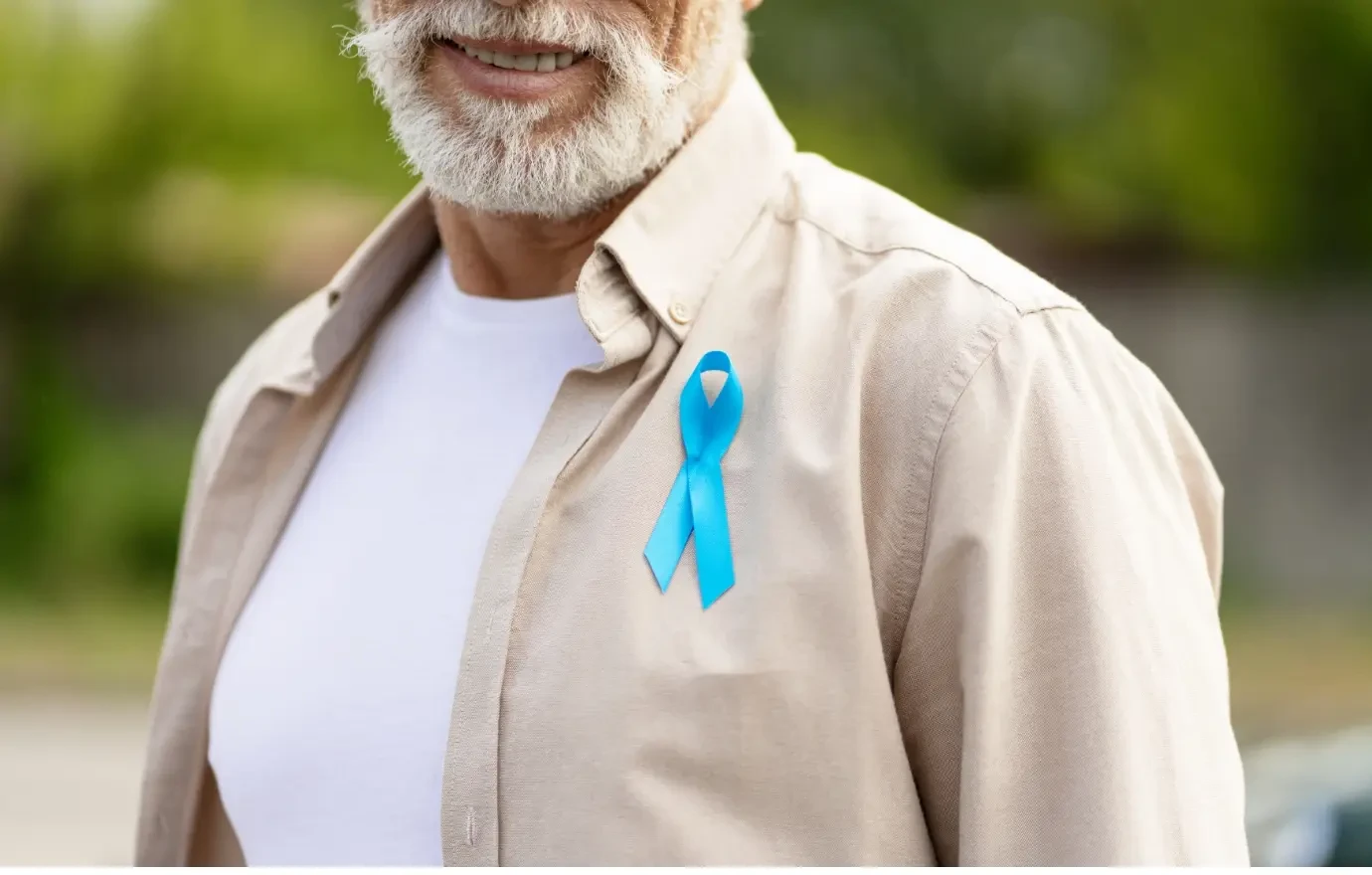
Prostate Cancer and Continence
WHAT EVERY MAN SHOULD KNOW
Every Blue September, New Zealand shines a light on prostate cancer. But for many men, the hardest part comes after treatment.
Leaking, dribbling, or needing to go more often can catch you off guard, especially if no one warned you it might happen. It’s a common side effect of surgery or radiation, and it affects thousands of Kiwi men every year.
If you’re navigating this now, or supporting someone who is, here’s what’s going on, and what you can do about it.
Why prostate treatment affects continence
The prostate sits just below the bladder and surrounds the urethra, the tube that carries urine out of the body.
When the prostate is removed (as in surgery) or treated with radiation, it can weaken or damage the muscles and nerves that help you control your bladder.
Most men experience some changes to continence during or after prostate cancer treatment, especially within the first 6 to 12 months.
Common post-treatment issues include:
If you or someone you care for is dealing with night-time leaks, look for products that offer:
- Stress incontinence – Leaks when you cough, sneeze, or move
- Urge incontinence – Sudden, strong need to go, even when the bladder isn’t full
- Overflow dribbling – Bladder not fully emptying, leading to light leaking
- Night-time leakage – Some men notice leaks while sleeping, especially in the first few months after treatment
Don’t let incontinence stop you from getting checked
If you’re worried about leaks, you’re not the only one, but it’s not a reason to avoid prostate checks or delay treatment. Continence issues are common, manageable, and often temporary. The earlier prostate cancer is caught, the better the outcomes. And with the right products and support, you can stay active, comfortable, and confident through it all.
What can you do about post-treatment incontinence?
The first thing to know is: incontinence after prostate cancer treatment is common, and it often improves.
Most men regain continence within a year, especially with support from pelvic floor exercises and the right continence products.
You don’t need to just “put up with it” while you wait.
Which products help manage male incontinence?
For everyday wear
If you’re managing light-to-moderate leaks during the day:-
- Advance® Male Guards – Designed specifically for
men, with a contoured shape that fits inside regular underwear
- Advance® Fixation Pants – Soft, stretchable support
underwear designed to hold pads in place more securely than regular briefs
- Advance® Pull-Up Briefs – Look and
feel like normal underwear, with built-in absorbency and comfort
Tip: If you’re using male guards or booster pads and finding they shift or bunch, fixation pants can help hold everything in place for better protection and peace of mind.
Extra support overnight or when going out
If you need a little more reassurance:-
Advance® Booster Pads – Add extra absorbency inside a
pull-up brief for peace of mind (without needing to size up or switch styles)
Advance® All-in-One (Adult Diapers) – Maximum
absorbency, best for overnight or longer outings
Protect bedding or furniture
Advance® Underlays – Soft, absorbent bed or chair protectors to reduce laundry and give you confidence
Advice from our team
Use our Product Finder Tool to match your needs
Order a Free Sample Pack to try products at home
Choose the right fit – Size affects comfort and security, but absorbency is a separate choice
Talk to your GP or specialist nurse Especially if leaks get worse or affect your lifestyle
Supporting someone through recovery?
If your partner or whānau member is recovering from prostate treatment, you might be helping with everyday things they’ve never needed help with before. That can be confronting, for both of you.
Here are a few small ways to support recovery while respecting their dignity:-
- Keep a discreet supply of products in easy reach (bedroom, bathroom, glovebox)
- Suggest trying new products before travel, appointments, or outings
- Focus on function: the right fit, absorbency, and comfort matter more than labels
- Let them take the lead, but stay nearby if help is needed
Not sure what to try? We’re here for you too.
You’re not alone?
Thousands of Kiwi men live with continence challenges after prostate cancer. It’s nothing to be embarrassed about, and you don’t have to navigate it alone.
ContinenceCare NZ is here to help, without judgement.
Our products are discreetly delivered, easy to use, and designed to support real lives, real needs, and real people.
REFERENCES
- Prostate Cancer Foundation NZ – Managing side effects
- Healthify NZ – Prostate problems & cancer
- Urology Care Foundation – Prostate cancer
